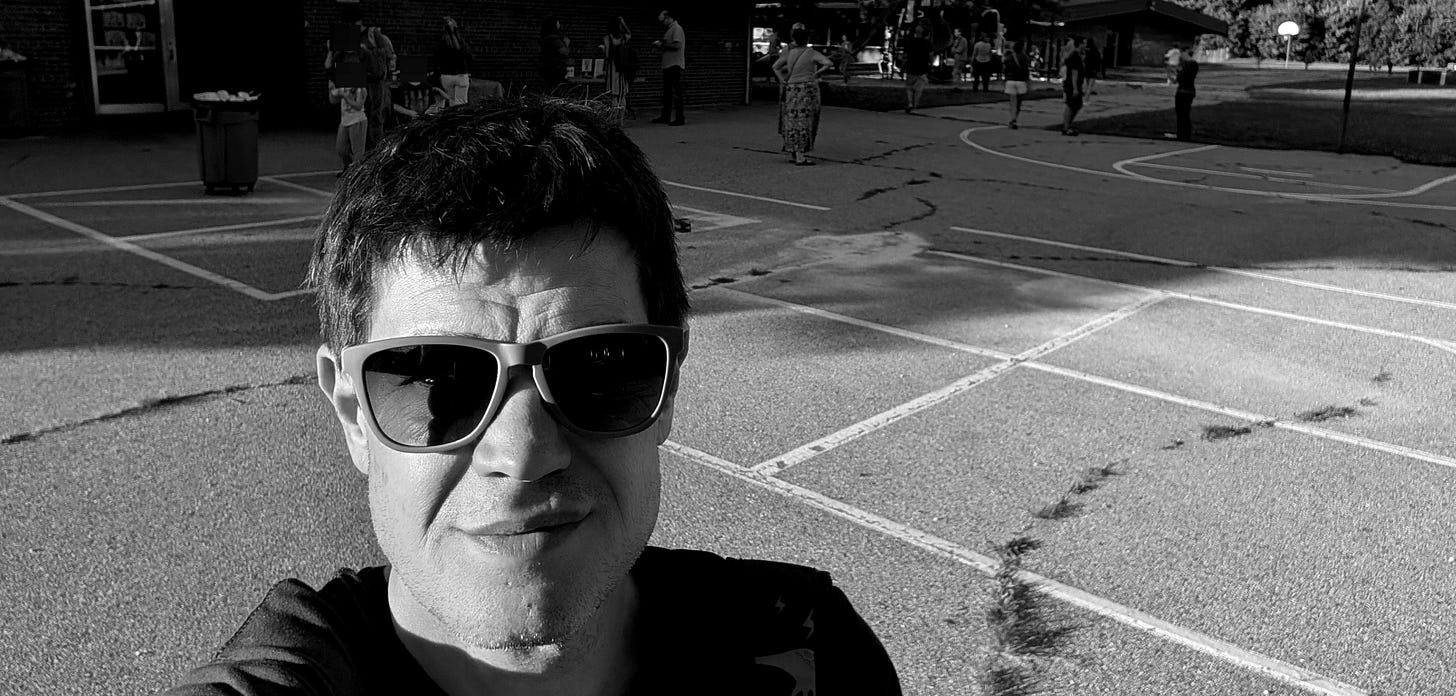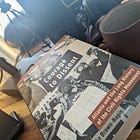District 8 Book Club - Patriot: Alexei Navalny
How to be an Extremist
If you go back in the Archives of Glazer.Vote, you’ll find Book 1 in the District 8 Book Club - Courage to Dissent.
These are books that I’ve read that have particularly inspired me to think differently about public service, the role of government in our lives, or to better understand political struggle.
It really all comes back to “why does government exist” and even “what is a government?” Government can take many forms, of course, so I’m not really talking about specific forms of government. But really, why do we have it all? What’s the point?
In the United States we have a lot of government: Federal, State, County, Municipal, School District, Water District, Neighborhood Associations, Condo Associations. All are forms of government. So, what then do we mean by “government”? Oxford dictionary (via Google) defines it as: the action or manner of controlling or regulating a nation, organization, or people.
This definition is striking for a couple of reasons, but I will point out two. First, it applies to a limited, defined group of people such as a nation, organization, or people - presumably “people” meaning a culture or cultural subset. So, first we need a defined set of people - for example, those found within the borders of a nation. The United States Government governs those found within the defined1 borders of the US. So, we need to define those being “governed.”
Second, there need to be “controlling or regulating.” I find this phrasing interesting. “Controlling” and “Regulating” are pretty hostile words. If I said, “Hey, my job is to control you.” You’d probably take some offense to that. Indeed, the phrase makes for some strange bedfellows: The Heritage Foundation (“What is administrative rule? It’s a system of government where nearly every aspect of citizens’ lives is regulated by obnoxious laws that nobody voted on enforced by pedantic bureaucrats who nobody voted for.”) and David Graeber, a noted anarchist philosopher:
“… violence, particularly structural violence, where all the power is on one side, creates ignorance. If you have the power to hit people over the head whenever you want, you don’t have to trouble yourself too much figuring out what they think is going on, and therefore, generally speaking, you don’t. Hence the sure-fire way to simplify social arrangements, to ignore the incredibly complex play of perspectives, passions, insights, desires, and mutual understandings that human life is really made of, is to make a rule and threaten to attack anyone who breaks it.”
Graeber, David. Fragments of an Anarchist Anthropology.
Speaking of ignoring passion, insight, and mutual understanding and just hitting people over the head, let’s talk a little about life under Vladimir Putin. Specifically, let’s talk about Alexei Navalny’s all-too-short life under Putin.
Navalny was a person living within the borders of Russia; indeed, he was a Russian. He was proud of being Russian. He was Russian in the days of the Soviet Union, he was a Russian under Boris Yeltsin once the soviet state collapsed under its own mix of age, bureaucracy, and vodka. And he was a Russian when Vladimir Putin installed himself upon his own throne.
I’m going to be honest. I received this book as a gift and was not expecting much. I know Navalny was a “dissident,” but that word holds a lot of different meanings. I had heard of his poisoning and near death and I remember hearing that he died. And, honestly, that’s probably more than most people outside of Russia and Eastern Europe know of Navalny. I now know that Navalny was a lawyer. I also know that he loves Russia and the Russian people. And, he hated corruption - that oligarchs would use the assets of the people (what we might call “government resources”) for their own personal enrichment.
Navalny’s story is a stark reminder that government, at its core, is about the relationship between power and people. His life and work exposed how easily that relationship can turn toxic; where the mechanisms of control become tools for personal gain rather than public service.
Navalny didn’t just critique corruption; he illuminated how it thrives in the shadows of unchecked authority. When government loses sight of its purpose to serve as a vehicle for collective action and mutual benefit it risks becoming a machine for extracting value to the benefit of those oligarchs and autocrats.2 This is the antithesis of why government exists in the first place.
The best governments recognize that “control” and “regulation” are not ends in themselves but means to foster environments where people can thrive. Navalny’s fight was, in many ways, a fight to reclaim that balance. He understood that a government’s legitimacy is not derived from its ability to enforce rules (or, in Graeber’s words, commit “structural violence”) but from its capacity to reflect (and, yes, enforce) the will and well-being of its people. When a government becomes a tool for repression and enrichment it betrays its fundamental purpose.
This brings us back to the question of “why have a government at all?” If we accept that government is, at its best, a framework for collective action, then its success should be measured by how well it enables each person within its governing borders to live meaningful lives. That’s a far cry from the cynical view that government is merely a necessary evil or, worse, a mechanism for control.
The Heritage Foundation and David Graeber, despite their vastly different ideologies, both highlight the dangers of government becoming disconnected from the people it’s meant to serve. Whether through bureaucratic overreach or outright authoritarianism, the result is the same: a system that ignores the complexity and humanity of those it governs.
So, what’s the alternative? It’s not anarchy, nor is it blind faith in institutions. It’s a commitment to building governments that are transparent, accountable, and responsive. It’s recognizing that the “controlling or regulating” aspects of governance must always be tempered by empathy, dialogue, and a willingness to adapt.
Navalny’s legacy challenges us to ask not just what government is, but what it could/should be. It encapsulates a vision worth fighting for, and it’s one that requires constant vigilance, participation, and, yes, even dissent.
By whom? Might be an interesting question to follow-up on sometime…
This is starting to sound a little too familiar …


